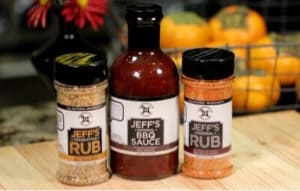- May 17, 2016
- 17
- 10
Hi,
Just starting out with my adventures in charcuterie. Haven't made my first batch yet but I think I got the basic down fairly well. Like, get a digital scale and weigh everything. Like, use a 3% ratio of salt to meat and a 0.25% ratio of cure to meat. My fuzziness lies in some of the finer details of the different spices and herbs. And right now it's the type of salt to use and more specifically the type and size of the salt crystal to use. Large grain, medium grain, small grain, sea salt regular or Kosher, flaked or granular???
Any help, hints or insight would be GREATLY appreciated!!!
Thanks.
Just starting out with my adventures in charcuterie. Haven't made my first batch yet but I think I got the basic down fairly well. Like, get a digital scale and weigh everything. Like, use a 3% ratio of salt to meat and a 0.25% ratio of cure to meat. My fuzziness lies in some of the finer details of the different spices and herbs. And right now it's the type of salt to use and more specifically the type and size of the salt crystal to use. Large grain, medium grain, small grain, sea salt regular or Kosher, flaked or granular???
Any help, hints or insight would be GREATLY appreciated!!!
Thanks.
Last edited:




